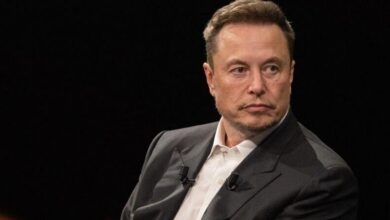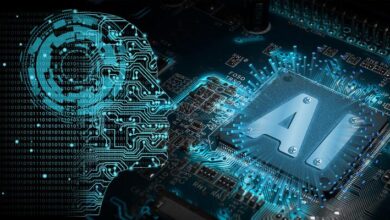‘The Achilles heel of artificial intelligence is its energy consumption’

Sam Altman, CEO of OpenAI, admitted it when he appeared at the Davos summit in Switzerland last January: The Achilles heel of artificial intelligence is its energy consumption. His hope is a breakthrough in nuclear fusion to produce infinite clean energy. It’s a Promethean dream. In the meantime, it’s dirty energy that’s coming to the rescue – coal.
Since the beginning of the year in the US, one major electricity producer after another has announced the postponement of plans to close coal-fired power plants. The Financial Times listed them all. In Wisconsin, Alliant Energy is delaying the conversion of a coal-fired plant to gas by three years, while FirstEnergy is pushing back its coal phase-out target beyond 2030.
According to a study by Standard & Poor’s, the decline in coal-fired power generation will be 40% smaller than what was forecast for 2023. Under these conditions, there is little chance of achieving the targets for a total phase-out of this energy by 2035, as decreed by the US Environmental Protection Agency. Twenty-five US states have already taken legal action against this decision.
The source of this panic over electricity lies within microchips. Those from Nvidia, the specialist in the field, heat up 10 times more than a typical microprocessor. In other words, ChatGPT consumes 10 times more energy than Google’s search engine. However, the major digital players – Microsoft, Amazon, and Google – are in the process of spending tens of billions of dollars to deploy data centers adapted to this new technology all over the world.
Yet another challenge for the energy transition
The Wall Street Journal takes the example of North Virginia, the best-equipped area in the world in this field. Its 250 data centers already consume 4,000 megawatts, enough to power 1 million homes. Current projects will increase this consumption to over 11,000 megawatts. As a result, according to the newspaper, data centers are set to account for 9% of electricity demand by 2030, twice as much as previous forecasts.
This is great news for power companies, whose profits are soaring, but it poses yet another challenge for the energy transition. We had foreseen the gradual switch to electric cars, but not that artificial intelligence would overtake it with such vigor. Creating as many new problems as we set out to solve – that too is the curse of Prometheus.



